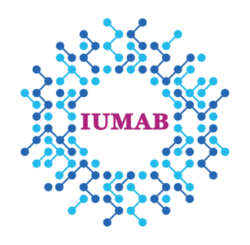Can our living body (Leib) be considered as an epistemic criterion in psychotherapy as Edmund Husserl proposed in “The Crisis of European Sciences”? A basic research with GDV-Kirlian.
Azevedo, E., Bassani, M.A.
ABSTRACT
This article presents a brief historical review of the “organismic criterion” concept, originally theorized by Edmund Husserl in “The Crisis of European Sciences” (1936), verified and developed technically in the last 40 years by Meneghetti and others (2005). The authors have conducted applied research in this field since 2007 and present empirical evidence generated by basic research with electrophotonic analysis considering 162 psychotherapeutic sessions with 31 different subjects using the ontopsychological approach, in which measurement of organismic parameters of both client and therapist are correlated according to the different moments of a typical psychotherapy encounter.
Keywords: organismic criteria, Leib, ontopsychology, eletrophotonic analysis, psychotherapy.
1. HISTORICAL BACKGROUND
Among some of the most fundamental problems of research in the contemporaneous clinical psychology is the investigation of epistemic and interdisciplinary criteria capable to produce clinical evidence, that is, to guide practitioners from any approach towards evidence and measurable results from their work, since they face, each and every day, increasingly complex situations in the clinic: existential, ethical, environmental, relational, professional, economical etc.
This research investigates the usage of the so called “organismic criterion”, proposed originally by Edmund Husserl with the “living body” (Leib) concept ‒ an inseparable unity, as opposed to the dualistic concept, of mind-body ‒ applying bioelectrophotonic techniques
The historical moment in which Edmund Husserl1 writes “The Crisis” is very peculiar. Positivism had reached its summit and the most brilliant intelligences seemed to be comfortable enough with any criticism towards its foundations. Husserl was familiar with many positivistic projects and its achievements, but also with the most important Psychology approaches and affirmed that only an approach capable to reach the Lifeworld (Lebenswelt) would be able to solve the paradoxes and challenges of an authentic psychology.
The Lifeworld is the ground of original experience, always pre- given to us, and existing before any theoretical position. All theories use it as a premise, but the Lifeworld itself is not a premise. Science, for Husserl, had been progressively reduced, since the age of physical mathematics, inaugurated by Galileu Galilei, to mere “technique”, that is, it could not really explain anything, because calculating and predicting a behavior did not mean real understanding, but most important: scientists had lost their contact with the Lifeworld, defined as a world of original intuitions, owing to their symbolic habits of consciousness, and a review of the consciousness was therefore necessary. The Lifeworld remains mostly unseen, or unconscious, along with the continuous original intuitive living metabolism. Regarding Psychology, however, this crisis seemed to be evident, since it had assumed the natural sciences method and this lead it to inconsequent conclusions. A new path and a new method was required so that psychologists could reach their concrete investigation ground. To sum up:
The Lifeworld problem, that seemed to deal at first only with the relationship between objective- scientific thought and intuition, ends up to expose the limits of reason and, particularly, exposing the fact that theory of knowledge had always remained a mere theory of science. He considered then that a complete turning in this sphere of investigation was needed and a fresh new start: a new method, a new field of investigation, a new science, but most important, a new way of doing science (Hu VI, p. 138).
Full text PDF: Azevedo
